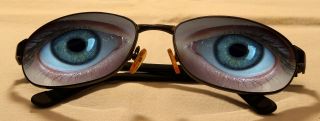Alcoholism
The Doctor Learns Humility
A personal perspective: Lesson one from my side of the couch.
Posted December 31, 2022 Reviewed by Devon Frye
Key points
- The human mind allows us to learn through inference, but we are not always correct.
- Inferences and judgments of others can be misleading if not critically examined.
- A focus on humility allows us to make inferences and judgments while seeking further information that confirms or disconfirms our understanding.
- The absence of humility can lead to judgment errors that threaten the integrity and survival of relationships.

The doctoral degree is awarded to individuals who have demonstrated expert-level status in their particular field. They are expected to provide guidance and leadership to those with less knowledge and skill and are taught to act with authority. The better doctoral programs also teach compassion, but humility can only fully be acquired through seminal experiences.
In the following, I share an experience that occurred thirty years ago that has allowed me to appreciate humility in my professional and personal life. It has made me a better doctor and citizen, and I hope that sharing this experience will do the same for you.
As a psychologist beginning a private practice, I contracted with the Department of Social Services (DSS) to do yearly intellectual assessments on individuals receiving disability benefits due to impaired brain function. The purpose of these evaluations was to validate that the disability still exists and that the patient is still entitled to receive public assistance.
GL was a 19-year-old female who was disabled due to Fetal Alcohol Syndrome. This occurs when a mother ingests significant amounts of alcohol during gestation, resulting in the infant being born with irreversible brain damage. These individuals can test very low on the standard IQ test and struggle with basic life functions.
While it is understandable that the state needs to track funded disabled individuals to verify that they still qualify for public assistance, the process of documenting cognitive deficits in those that struggle to function is often a painful reminder of their limitations. I saw individuals who had lost parts of their brains in traumatic accidents, brain cancer sufferers, and individuals with dementia. Most of them understood the need to go through this evaluation regularly, but it was painful for them, and they did not hide this.
GL was different. In addition to her very low IQ, her facial features were distorted by the disease, as were her hands and fingers, forcing her to wear her deformity for all to see. Somehow, GL managed to carry herself with grace and fineness. She was cheerful, and her attitude on life was as positive as any I have ever seen. I could see striking physical beauty through her bodily and facial distortions.
Her mood was bright, and she conveyed with warmth how proud she was to be working at the local grocery store as a bagger. She moved me deeply. At the same time, I developed very strong anger toward the woman who did this to this wonderful person. The anger grew as we spent the time together completing her evaluation, and I prepared to speak to her mother, who was sitting in my waiting room.
I asked the mother to come into my office and for GL to wait outside. The mother seemed 30-35 years older than GL, and I wanted to ensure she understood that GL would need to be cared for her all of her life. We had the following conversation.
Dr. L.: Your daughter was very pleasant and cooperative during the examination.
Mom: She always tries to do her best.
Dr. L.: I can see that. But she will always need to be cared for.
Mom: Yes, we know that. We have made appropriations for her after we are gone.
Dr. L.: That is a tremendous responsibility.
Mom: I know. We weren’t planning on keeping her.
I looked at her quizzically.
Mom: We took her as a temporary emergency foster care placement, but we fell in love with her and adopted her.
I was shocked to realize that I had judged the person in front of me to be an uncaring, neglectful parent when she actually was quite the opposite. I thought that she had ruined GL’s life when in fact, she saved it.
The lesson I learned from GL and her angel of a mother provided a rich context for the rest of my career and personal life as well. It humbles me whenever I see others behave in aggressive or unattractive ways. I realize that others may have reasons for what they do that I am unaware of.
Aggressive driving that might resemble irresponsible daredevil behavior may be someone rushing to an emergency room. A person that pushes ahead of me in line might be a surgeon on the way to surgery or a parent rushing to pick up their child from school on time.
I do not allow my safety to be compromised, and I do not allow myself to be exploited, but I consistently give others the benefit of the doubt until I find out otherwise for certain. I've found that the benefits of greater humility are extensive, personally and professionally. It gives me a greater open-mindedness. A constant awareness that there is always more to situations than we can see, and an openness to finding new information.
Greater humility has allowed me to understand others better and empathize with them more deeply. It also allows me to accept that which I do not understand and be more sympathetic and hence more tolerant of others. It reduces the number of times I misperceive others, hence my need to apologize.
It also helps me understand myself better. I can identify parts of myself that I don’t fully understand and seek greater understanding through self-reflection and examination. It enables me to be more tolerant of my own quirks, flaws, and weaknesses while continuing to heal and grow.
Next time you see others behave in unattractive ways, consider that the person might have good reasons for doing what they are doing before you condemn them. Some day you will hope that they will do this for you.




